Questions To Ask When Doing Market Research
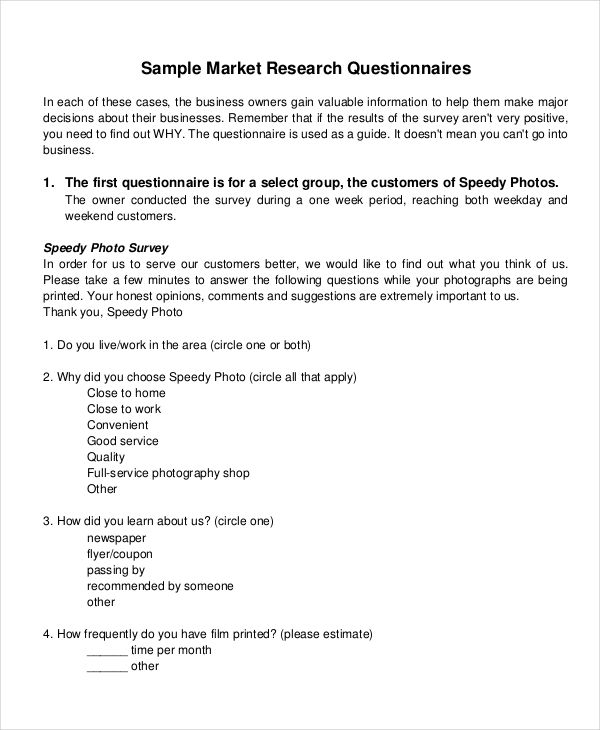
In today's fiercely competitive business landscape, launching a product or service without a thorough understanding of the market is akin to navigating uncharted waters blindfolded. The repercussions of inadequate market research can range from wasted investment and missed opportunities to outright business failure. Therefore, asking the right questions during the market research phase is paramount to making informed decisions and maximizing the potential for success.
At its core, effective market research is about understanding your target audience, the competitive environment, and the overall market dynamics. This article delves into the essential questions businesses should be asking when conducting market research, ensuring they gather the insights needed to navigate the complexities of the modern marketplace and build a sustainable competitive advantage. Failure to ask these critical questions can lead to costly missteps and ultimately, undermine the viability of a business venture.
Understanding Your Target Audience
Before anything else, pinpointing who you're selling to is essential. Identifying your ideal customer is the first and most important step in understanding market fit. This lays the foundation for all subsequent research efforts.
Defining Demographics and Psychographics
What are the age, gender, location, income, and education levels of your target customers? These basic demographic questions provide a foundational understanding of your potential buyers.
But demographics alone aren't enough. You must also understand the psychographics – their values, interests, lifestyles, and attitudes. Understanding their motivations provides a deeper layer of insight.
What are their pain points and needs? What problems are they trying to solve? Understanding these needs will shape product development and marketing strategies. Consider using surveys and interviews to gain these insights.
Behavioral Patterns
How do your target customers make purchasing decisions? Which channels do they use to research products or services? These questions help you understand the customer journey.
Are they price-sensitive or more focused on quality and features? Do they prefer online or offline shopping? Understanding these behavior patterns informs pricing and distribution strategies.
What are their preferred brands and why? This reveals insights into competitive advantages and brand loyalty. Consider analyzing reviews and social media discussions.
Analyzing the Competitive Landscape
Understanding your competition is just as crucial as understanding your customers. Identifying direct and indirect competitors provides insight into market saturation. This also helps understand what differentiates the businesses and how to improve offerings.
Identifying Key Competitors
Who are your direct competitors offering similar products or services? Who are your indirect competitors addressing the same customer need in a different way? Identifying all competitors is vital.
What are their strengths and weaknesses? What are their pricing strategies, marketing tactics, and distribution channels? Analyzing competitor strategies gives you an edge.
What is their market share and customer base? This helps you assess the competitive intensity and identify opportunities. Consider using industry reports and competitor websites.
Differentiation and Value Proposition
What unique value do you offer that your competitors don't? What sets you apart from the crowd? Defining your unique selling proposition (USP) is essential.
How can you better meet the needs of your target audience than your competitors? What unmet needs can you address? Differentiating yourself is the key.
How can you communicate your value proposition effectively? Your messaging must resonate with your target audience. Analyze your marketing channels to ensure your target audience understands your key differentiator.
Evaluating Market Dynamics
The broader market environment plays a significant role in your success. Understanding the market helps you respond to changing market and customer needs. Understanding how policies and trends impact your industry ensures you stay competitive.
Market Size and Growth Potential
What is the overall size of the market you're targeting? What is the projected growth rate? Assessing market potential is vital.
Are there any emerging trends or technologies that could impact your business? What are the regulatory and economic factors that could influence your industry? Staying ahead of changes is important.
What are the barriers to entry in your market? How easy or difficult is it for new competitors to enter the market? Considering any barrier to entry into market is important for success.
Trends and Regulations
What are the current trends shaping your industry? Staying informed about trends is necessary.
Are there any new regulations or policies that could affect your business? Monitoring changes in policy is necessary for the survival of your business.
How are these trends and regulations impacting your target audience and competitors? Consider doing a deep dive into these topics to get a full picture of how trends and regulations affect all parties.
Conclusion
Asking the right questions during market research is an ongoing process, not a one-time task. The insights gained from addressing these questions will inform your product development, marketing strategies, and overall business decisions. By consistently seeking answers and adapting to evolving market dynamics, businesses can position themselves for long-term success and build a sustainable competitive advantage. Remember to consistently check on and evaluate market dynamics.


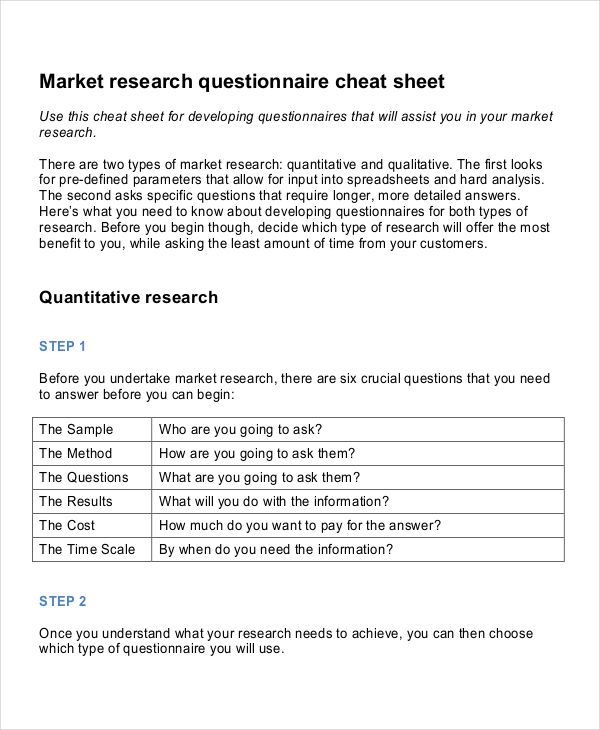





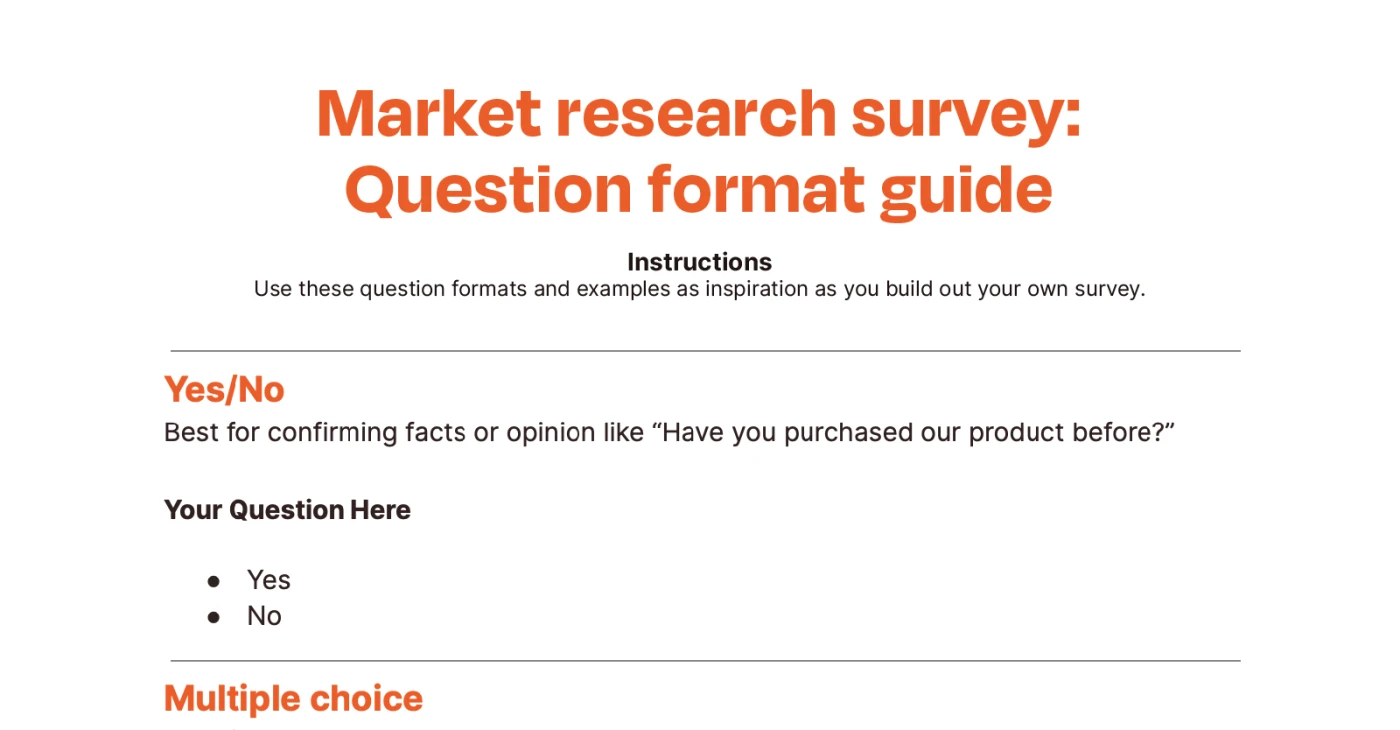

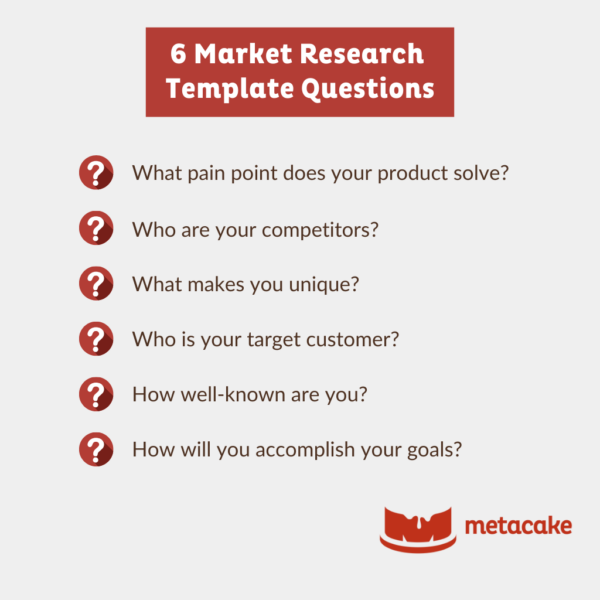
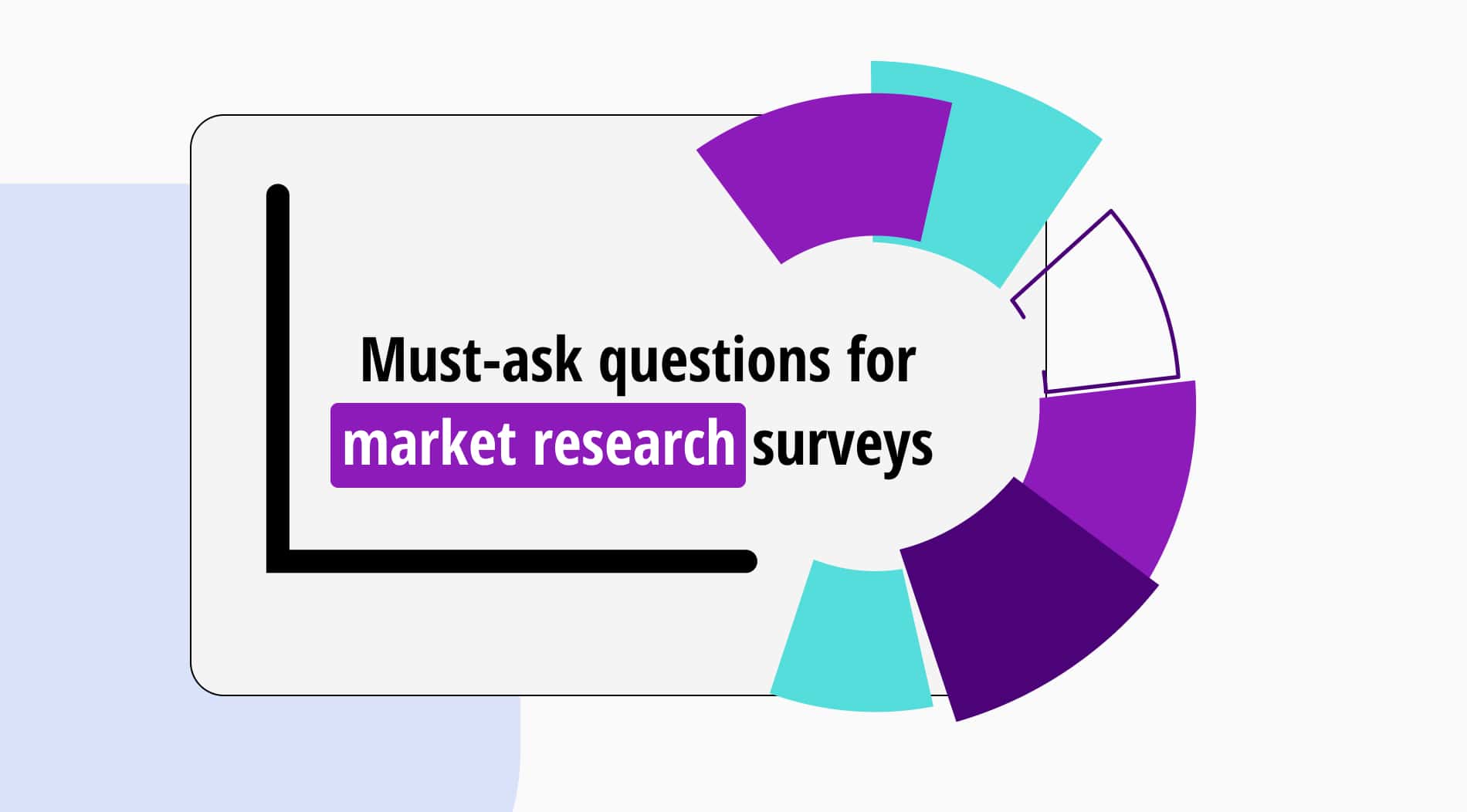
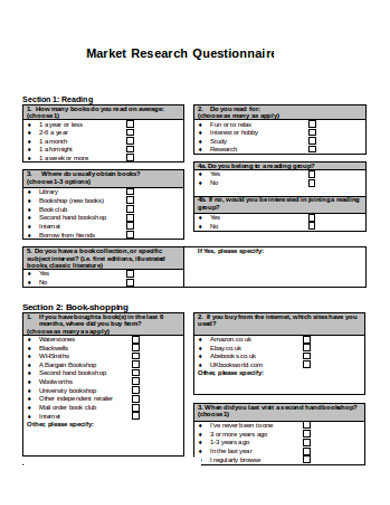
![Questions To Ask When Doing Market Research The Ultimate Guide to Market Research [+Free Templates] | Mayple](https://assets-global.website-files.com/5ad4b5ac3265e94b4f4625ea/62ef81cb917ce125e378f7d9_market-research-survey-template1_47b2094ad891ce4ae7cbd85a32c58266_800.jpeg)




